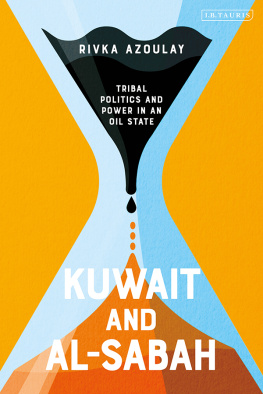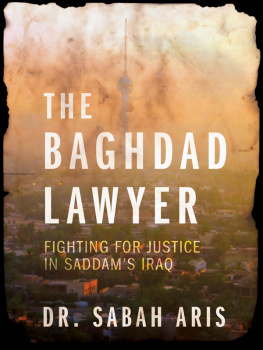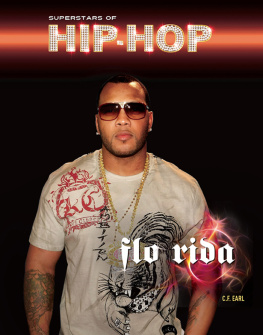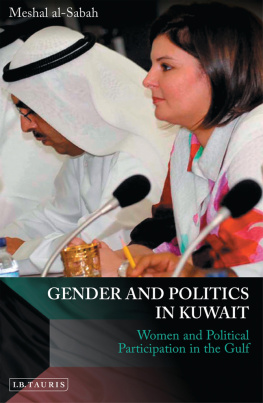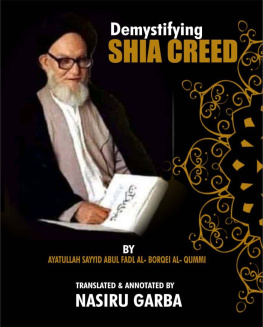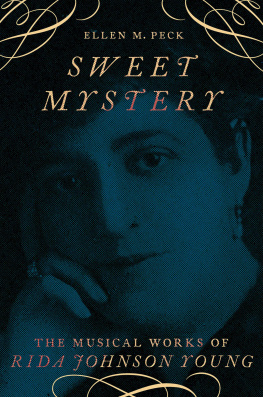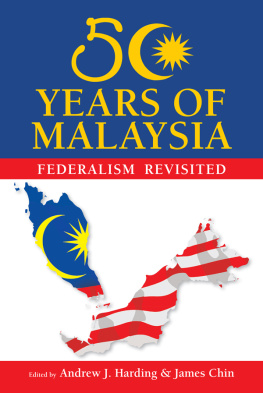ACKNOWLEDGEMENTS
I have long believed that my fathers extraordinary life and achievements, not least being widely acclaimed as The Father of Education in Syria, were a lesson to future generations. What is not written down is forgotten, and I felt this a story worth telling.
My thanks go to all who contributed to the creation and publication of this book.
Compiling this book was not an easy task as many of my fathers papers had been scattered. I would like to thank, in particular, Dr Sabah Kabbani, the author of this book. His meticulous research took him to the archives in France and Turkey, the Library of Congress and those of the Damascus University. Dr Kabbani succeeded in writing this as a novel rather than a traditional biography.
I would also like to thank Peter Clark, who has done a tremendous job of translating the manuscript from the original Arabic into English. His translation will enable my fathers grandchildren and great-grandchildren and indeed many others to read this book in English.
My grateful thanks also go to Alice Dugdale, who, among many other things, worked diligently to help me find and select the wonderful photographs contained in this book.
Last, but not least, I would like to thank my nephew Ragheb Mudarres, who has contributed so much time and effort to this project. I cannot thank him enough for his many hours of impressive research, not least in compiling the family tree which was a most challenging task. I also thank him for overseeing the books production and for encouraging those who have worked on it.
All these labours have created a fine story and an important historical record which I hope will be a source of inspiration to many.
Wafic Rida Sad
February, 2021
Published in 2021 by
HAUS PUBLISHING LTD
4 Cinnamon Row
London sw11 3TW
Originally published in Arabic as Rida Said: muassis al-jamia al-Suriya rajul li-kull al-aqdar by Sabah Kabbani
This edition published in agreement with Wafic Rida Sad English translation Copyright 2021 Peter Clark
The moral rights of the authors have been asserted
A CIP catalogue record for this book is available from the British Library
Paperback ISBN 978-1-912208-27-2
E-book ISBN 978-1-912208-28-9
Typeset in Garamond by MacGuru Ltd
Printed in the UK by TJ Books
All rights reserved.
1
THE AWAKENING
The stories of all good books are truer than if they had really happened.
Ernest Hemingway
Monday, 5 May 1913
Istanbul once again!
He left Taksim Square and headed towards the main street of Beyolu, where he and his colleagues at the Medical School used to go in their free time.
Whenever they had any spare time from the toils of their studies they would melt into this fine street flanked on both sides by elegant shops, by entrances to covered malls with their ornate ceilings, by the embassies of countries accredited to the Sublime Porte with their imposing metal gateways surmounted by fluttering national flags.
In the middle of the street swayed the one-carriage tramway that slowly covered the short distance of the street, up and down, so slowly that passengers were able to exchange greetings with pedestrians and to wave cheerfully to people they knew or did not know among the crowds as they drifted along the pavements.
It was Istanbul once again: with its long streets, its magical coastline, its green hills, its mosques with their ash-coloured domes and tall, slender minarets reaching up to the heavens.
But was this really the Istanbul that he had known earlier, where he had spent his youth and early manhood? He wondered: What has changed here? Or was it he who had changed? Had the ugly Balkan war changed him now he was returning from the war zone, worn out by the soldiers wounds that he and his fellow doctors had dealt with at the military field hospital at the front? They had done all in their power to save them and to relieve their intense sufferings with what they had left in drugs and pain-killers. Here he was, even after having spent weeks away from the battlefield, still tortured his hearing, his very existence were filled with cries of the soldiers in the middle of the night as they writhed in pain, asking in broken, rattle-like tones: Why are we here? Why are we fighting? For what are we dying?
He continued on his way with hastened steps, his heart pierced, as if by a spear, by the questions of those soldiers and by many others that he kept asking himself but to which he found no answer.
In this mood he had come back to Beyolu without resisting a nostalgia for the happy days of his youth. Indeed he , the Persian Garden, overlooking the Al-Salimiya tekke and surrounded by the meadows on both sides of the Barada River.
Umar Lutfi was so proficient in French that the authorities sent him from the province of Damascus to Galatasaray School in Istanbul for two years, making use of his language and organisational skills after he had completed his military service. As well as his immersion in French he also had a wide general culture. His analytical mind was characterised by precision and objectivity, which he could articulate with an elegance that was appreciated by everyone who sat around him during intimate evening gatherings at their Damascus house.

He was now at the end of the principal road; on the left was the entrance to his old school. He went through the great gateway and strolled over to the garden with its tall trees and its water channels zigzagging among beds of flowers of many colours. He paused at the enquiries office to ask the official on duty to say he had come to call on Ustaz Umar Lutfi Effendi. The official stared at the visitor in smart military uniform. When he became aware of his rank, which was clear from his epaulette, he welcomed him with the words,
Kul aasi Rida Sad if I am not mistaken?
Yes, thats me.
The Ustaz will be waiting for you. His office is the third on the right in the courtyard facing you. Welcome back to Galatasaray.
As soon as he reached the room with the door open, Ustaz Umar Lutfi looked up from behind his desk and ran forward to greet his old student. He embraced him with open arms and clutched him to his chest, the embrace of a father for his son after a long separation.
You are most welcome, most welcome. Rida. Excuse me for addressing you just by your name and not giving you the proper military salute, he added joyfully. I am a yuzbashi on pension and you ma shaAllah are a doctor of kulaa rank. Ah! How this rank suits you. I have not congratulated you for that yet! But being in civilian dress, as you see, my son, may mitigate the offence.





